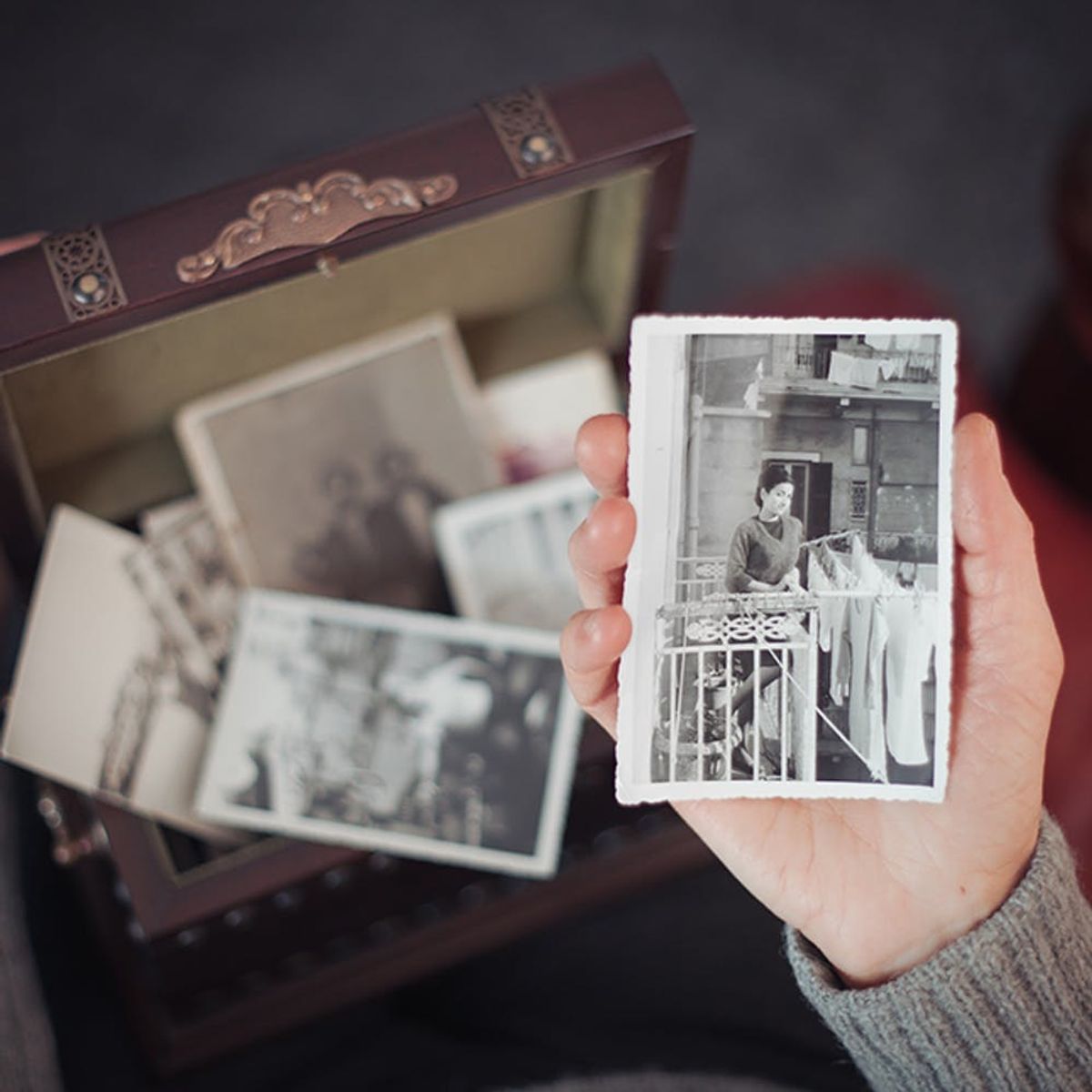Reflecting on the past can help you grow.
When Nostalgia Becomes Unhealthy, According to a Clinical Psychologist

Are #TBT social posts, recycled trends, and books that remind you of your childhood some of your favorite things? If so, you’re not alone: People love nostalgic events or items because they can boost happiness, reminding you of a previous time or version of yourself that you loved. However, while digging into the past is a gleeful experience for many, nostalgia can surface a flurry of confusing, stressful, or sad feelings for others. Dr. Kate Cummins, a San Francisco-based clinical psychologist, recently helped us understand what happens when we feel nostalgic. She also broke down the ways that nostalgia can benefit you — and when it can hurt.

So what is nostalgia, exactly, and how does it work? “The human brain conceptualizes events into positive and negative memories; nostalgia is the process of remembering life events that are happy,”Cummins explains. The feeling creates a connection to good experiences, places, people, and events from the past, and “provides a hit of neurotransmitters such as serotonin and dopamine that create pleasant feelings,” she added.
Nostalgia is healthy, Cummins said, when people use it to draw internal motivation or creativity from the feelings they have about past experiences — for example, when someone remembers a situation or person who inspired them to become a better version of themselves. “When a person travels back to a productive or motivational time, the nostalgic emotions can help push them toward growth and future inspiration,” she says. It’s also a healthy coping strategy and has been scientifically proven to improve patience, help lessen the pain of loneliness, and improve well-being.
The viral 10-Year Challenge that surfaced on social media earlier this year serves as a solid example of the inspirational benefit Cummins mentions. Did you look at the picture of yourself 10 years ago and see how far you’ve come? Maybe you finally formed some healthy habits and it shows in your recent photos, or you can flash back and remember the person you were, and see that you’ve since achieved some of your career dreams with hard work. “When you can look back on yourself 10 years ago and appreciate what you were while recognizing the truth in where you are, the progress you’ve made to get there, and the challenges you’ve overcome, this nostalgia is healthy and helpful,” Cummins says.
Looking back on the past with overly rose-colored glasses, on the other hand, might cause your feelings of nostalgia to take an unhealthy twist. “If you look back and idealize what happened, you might compartmentalize the past and remember events differently from how they actually occurred,” Cummins explains. “If you find yourself doing this to feel better about a previous version of yourself or how something happened instead of focusing on the truth, you might feel let down or disappointed with you or your life is today. Even more, if things truly were better in the past, sifting through it might upset you or trigger negative experiences in the present.”
Sound familiar? You might’ve experienced these feelings romanticizing a relationship after a necessary breakup, losing a toxic job, or while having a tough time after moving to a dream destination. “We can’t get rid of experiences from the past, but we can learn from them and move forward,” Cummins reminds us. “Regardless of which past emotions you feel from something nostalgic — pictures, a song, a smell — it’s important to bring yourself to the present by focusing on the positive changes that have happened since the time or event you feel nostalgic about.”
If you feel unsure or stuck about how to move forward, your best bet is to get as real as possible with yourself about what happened in the past — and to try to see how you’ve grown. When you do this, you’ll be able to use nostalgia as a powerful tool that can help propel you forward. “Sometimes, we focus on the future and goals we hope to accomplish without paying much attention to where we’ve come from and have done to get to where we are now,” Cummins says. “Use feelings as nostalgia as a reminder to be proud of who you’re becoming and who you are today. It’s one of the greatest gifts you’ll ever give yourself.”
RELATED: 11 Retro-Inspired Gifts That’ll Give You Nostalgic Feels
(Photo via Getty)



















